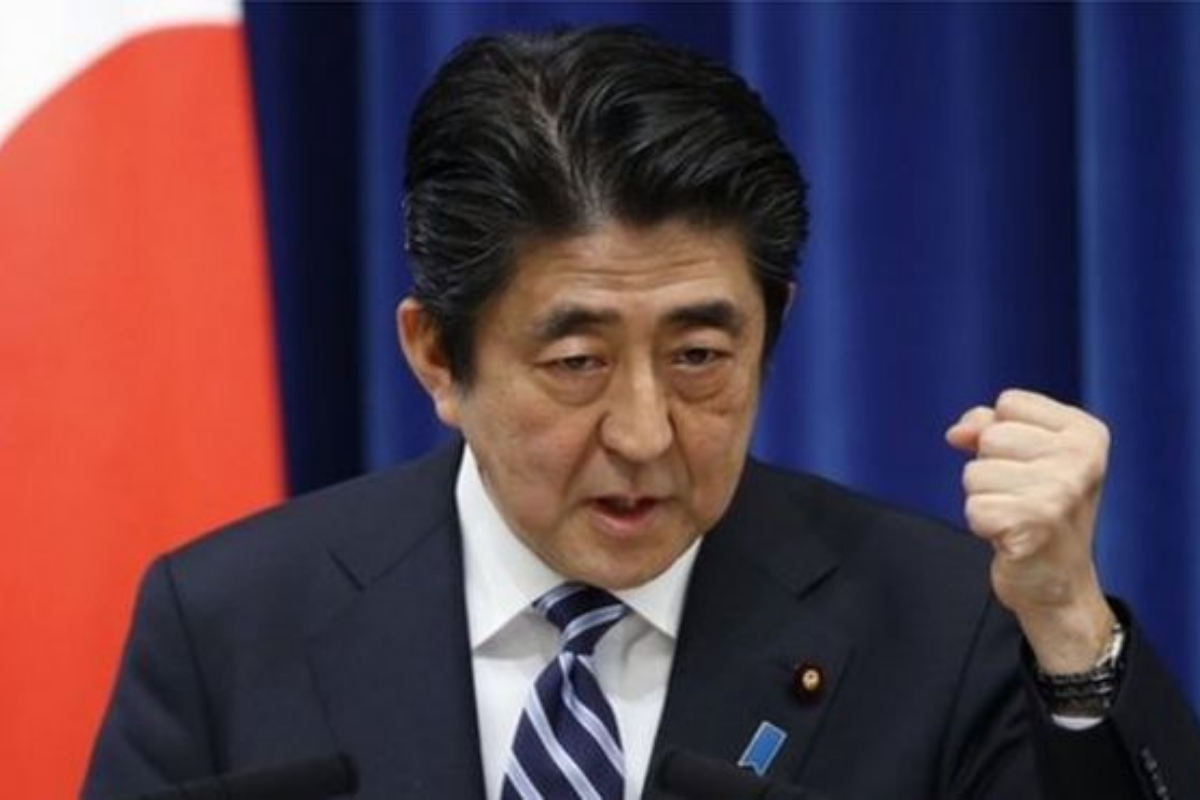- A man burned himself near the office of the Japanese prime minister on Wednesday.
- He reportedly objected to a formal burial for Shinzo Abe, who was shot dead in July.
- State funerals are uncommon in Japan; Abe will be honored with a state funeral next week.
Local media said that a man burned himself near the office of the Japanese prime minister on Wednesday after voicing objections to a formal burial for the deceased former prime leader Shinzo Abe.
Police, the office of the prime minister, and the cabinet office all refused to comment on the reports.
TV Asahi said that the guy lit himself on fire after telling police he was opposed to next week’s planned event for Abe.
The news station said that a police officer was hurt while attempting to extinguish the fire.
According to the Kyodo news agency and other sources, police were dispatched to the location at approximately 7:00 a.m. (2200 GMT) after reports that a man was “engulfed in flames.”
The agency reported that a message indicating the man’s opposition to the funeral was discovered beside his body.
Several hours later, a correspondent from AFP witnessed a charred patch of grass and bushes, along with police and media.
Abe, Japan’s longest-serving prime leader, was shot and killed while campaigning on July 8, and on September 27 he will be honored with a state funeral paid for by the government.
However, state funerals are uncommon in Japan, and the decision was contested. Recent surveys indicate that more than half of the population opposes the proposal.
Abe was the most well-known politician in Japan, and despite resigning in 2020 for health reasons, he remained a famous public figure.
He was shot while campaigning for ruling-party candidates in the Nara region’s upper-house elections by a man who claimed to suspect the former leader had ties to the Unification Church.
[embedpost slug = “/typhoon-nanmadol-kills-two-people-in-japan/”]
Global leaders anticipated
The assassination sparked shock and international condemnation, but Prime Minister Fumio Kishida’s decision to authorize a public funeral has been controversial.
Abe was not uniformly well-liked, and many were opposed to his aggressive nationalist ideals or irritated by recurrent claims of cronyism.
The Abe event is anticipated to cost a minimum of 1.7 billion yen ($12 million).
Kishida, who is presently in New York to address the United Nations General Assembly, has supported the idea, arguing that Abe’s record-setting tenure and international stature justify the celebration.
However, the prime minister’s approval ratings have taken a knock as a result of the decision and the scandal surrounding relationships between lawmakers and the Unification Church.
According to reports, Tetsuya Yamagami, the man accused of shooting Abe, disliked the church for his mother’s membership and the large payments that bankrupted his family.
The religion, whose adherents are frequently referred to colloquially as “Moonies” after its Korean founder Sun Myung Moon, has been accused of forcing believers to pay sometimes disastrous donations, which it disputes.
While Abe was not a member of the religion, he addressed connected groups, and his death prompted a reexamination of the sect’s ties to Japanese lawmakers.
According to a probe conducted by Kishida’s ruling Liberal Democratic Party, approximately half of its legislators have ties to the group.
He has promised that the party will sever all connections with the church, which denies any wrongdoing.
The state funeral for Abe will take conducted at the Budokan, a large music and sports facility in Tokyo.
It is anticipated that world leaders, such as US Vice President Kamala Harris and Australian Prime Minister Anthony Albanese, will attend.
[embedpost slug = “/shinzo-abe-japans-police-chief-resigns-over-the-murder-of-the-former-prime-minister/”]





















